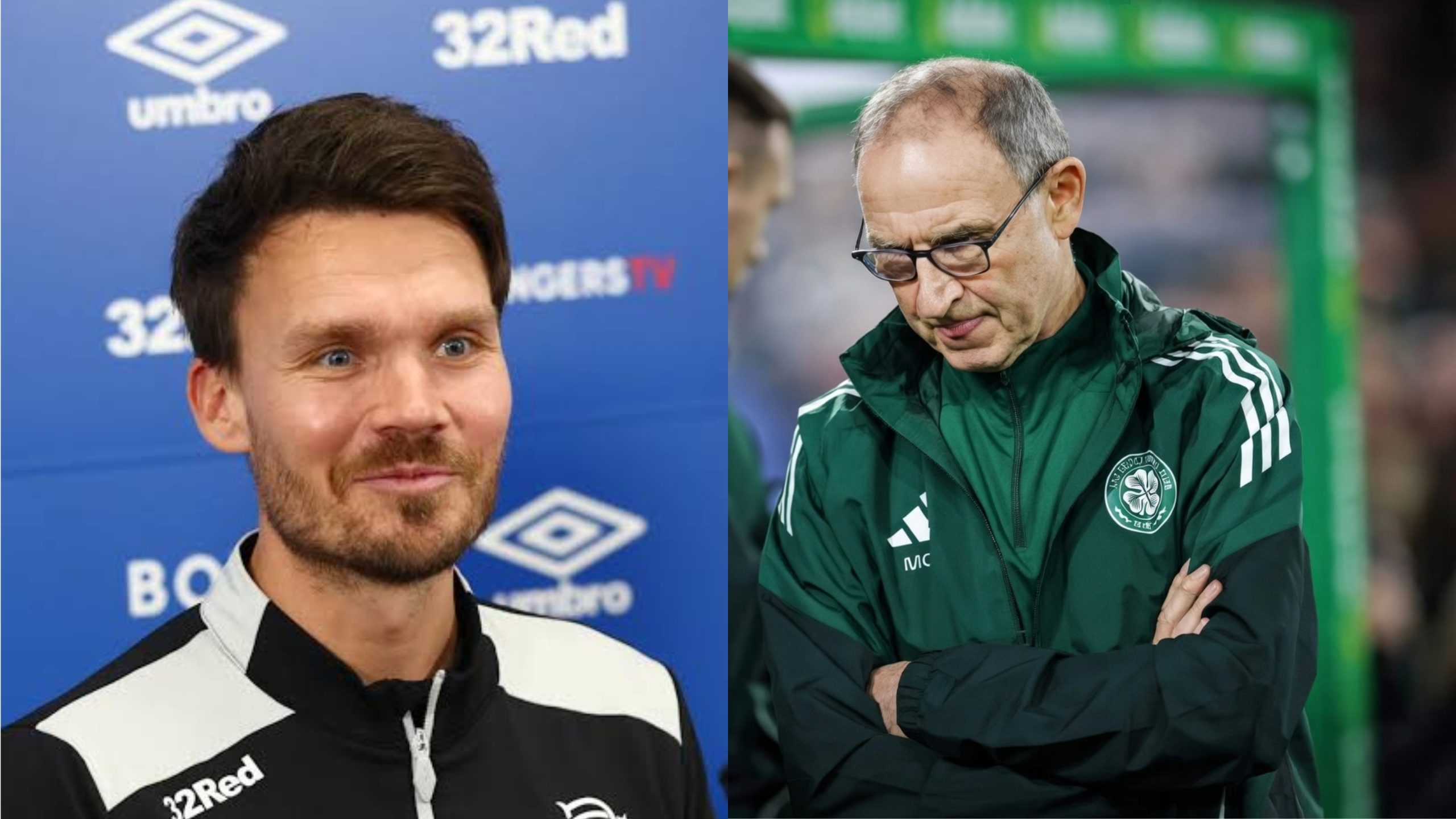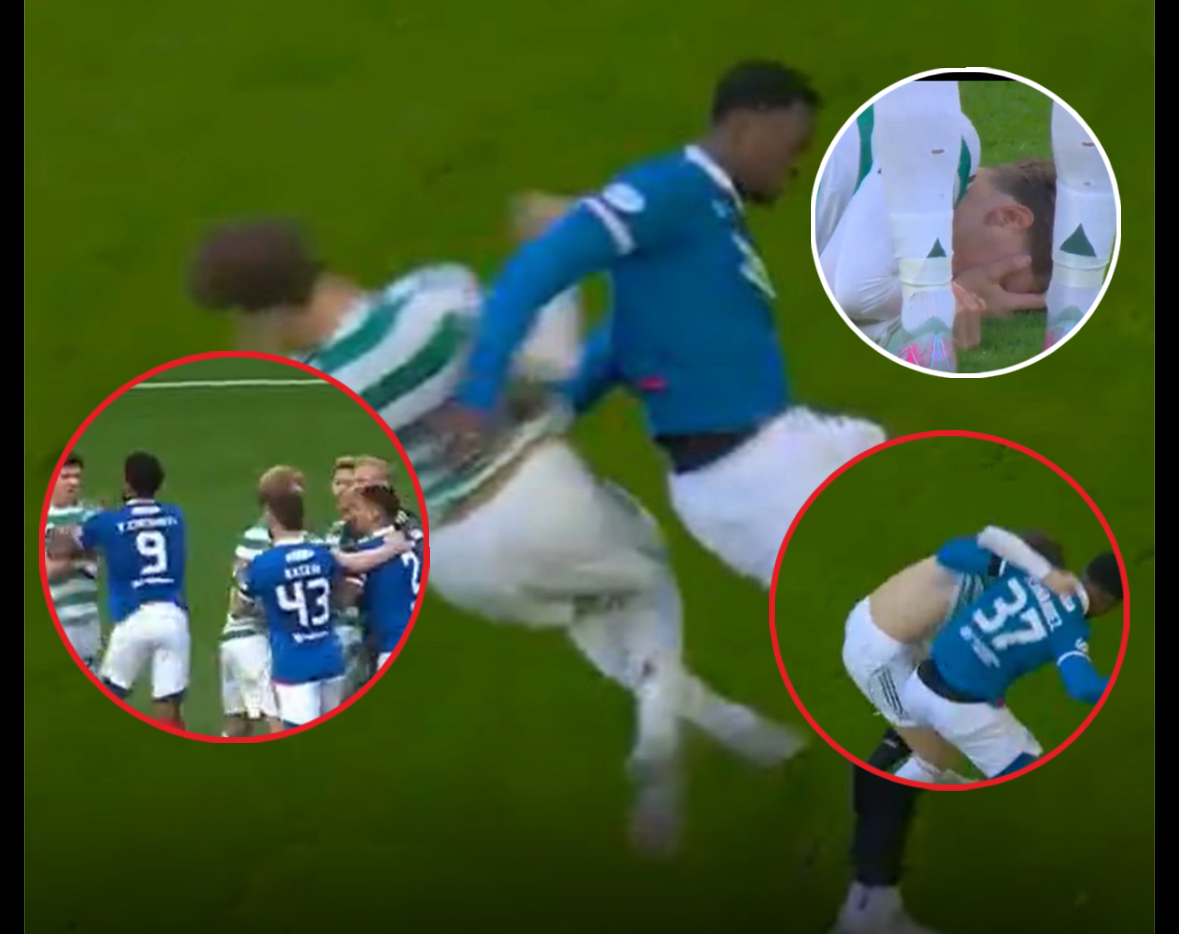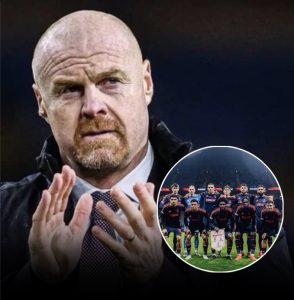JAMES TAVERNIER REVEALED THE REASON WHY HE WILL LEAVE RANGER AFTER THE CLASH AGAINST BRANN IN EMOTIONAL VIDEO TO THE FANS
When the final whistle blew in Bergen, the stadium lights seemed to dim on more than just Rangers’ European hopes. It felt, to many fans, like a deeper moment — a pause in a chapter that has defined the modern Ibrox era.
James Tavernier, the club’s long-serving captain, stood motionless for a few seconds, his face telling a story words could barely capture. Cameras caught the familiar figure — armband tight on his sleeve, eyes burning with frustration — walking slowly toward the travelling support.
Then came the clip that set social media alight: an emotional Tavernier speaking directly to the fans. His tone was heartfelt, his words measured. And while he didn’t announce any formal decision about his future, supporters couldn’t help but sense a man standing at a crossroads.
A Night to Forget in Norway
Rangers’ clash against SK Brann was meant to be an opportunity to reassert dominance after a mixed start to the campaign. Instead, it became a night filled with disappointment.
Brann, organised and aggressive, pressed high from the first whistle and exploited gaps in Rangers’ shape. A 3–0 defeat left the Scottish side reeling — and it wasn’t just the scoreline that hurt. The performance raised deeper questions about mentality, leadership and direction.
Tavernier, who has carried the armband for nearly a decade, wore the anguish of that defeat as if it were a personal failure. For years, he’s been the face of Rangers’ rise back to prominence: the relentless full-back turned captain, the man who lifted the Scottish Premiership trophy in 2021, and the one who has often fronted up during harder times.
In Bergen, though, the weight of those years seemed visible
“I Know the Fans Deserve Better” — What He Really Said
In the emotional post-match video shared across platforms, Tavernier thanked supporters who had travelled to Norway and apologised for the team’s lacklustre display.
“I know the fans deserve better,” he said, his voice low and weary.
“We’ve all got to look at ourselves. Nights like this can’t keep happening. You give everything for this club because the fans give everything for you.”
To the untrained ear, it was a captain’s standard post-defeat reaction. But to those who’ve followed Tavernier’s every word over the years, something felt different. The tone wasn’t just frustrated — it was reflective, almost final.
He spoke not just as a player reviewing a match, but as someone weighing up years of service, expectations and emotional toll
The Weight of the Armband
Few players in modern Rangers history have shouldered more responsibility than Tavernier.
He arrived in 2015 when the club was still clawing its way back from financial ruin. He stayed through managerial upheavals, title heartbreaks and European triumphs. He led Rangers to invincible status in 2020–21, ended Celtic’s nine-year reign, and restored pride in the badge.
But leadership comes at a cost. Every missed pass, every defeat, every press conference becomes personal. Tavernier has been booed, praised, doubted and worshipped — sometimes all in the same week.
After the Brann loss, many supporters began to wonder whether the captain’s emotional fatigue was finally catching up with him. One fan on X wrote:
“Tav’s been our leader through everything, but you can see this one cut deep. It’s like he’s carrying all our frustrations on his back.”
Fan Reaction: Between Love and Frustration
Reactions from the Ibrox faithful were immediate and mixed. Some urged patience and empathy:
“He’s given us everything. Don’t turn on him now. He bleeds blue.”
Others, though, voiced the weariness that comes when expectations repeatedly go unmet:
“Love Tav, but maybe it’s time for a new voice in the dressing room. Sometimes even legends need a break.”
It’s the paradox of football loyalty — the same passion that builds heroes also accelerates their scrutiny. For years, Tavernier’s leadership was unquestioned; now, in moments of vulnerability, even his strongest supporters are debating what comes next.
Why the Speculation Won’t Go Away
No credible outlet has reported any formal plans for Tavernier to leave Rangers. Still, speculation spreads naturally when emotion and uncertainty collide. Theories abound: that he might be considering a move abroad, that he could take on a mentorship role elsewhere, or that he’s simply reflecting on his future after a bruising season.
Much of it is conjecture — yet all of it speaks to the same underlying truth: fans sense a shift. The Brann defeat didn’t just expose weaknesses on the pitch; it exposed emotional exhaustion in a squad led by a man who has given nearly a decade of his career to one cause.
The Human Side of Leadership
It’s easy to forget that behind the headlines, the captain’s armband belongs to a person — not an ideal.
Tavernier is 33 now. He’s played hundreds of matches for Rangers, faced relentless pressure and lived through every high and low the club has endured in recent memory. For younger players, he’s been the role model; for fans, the constant presence.
In his emotional video, what resonated wasn’t just the apology but the authenticity. There was no scripted media tone, no polished PR line. It was raw honesty — something football rarely allows space for.
The Bigger Picture: Where Rangers Go from Here
The club’s leadership transition may already be underway. A new generation of players is emerging, and questions about style, tactics and long-term direction are louder than ever. Whether Tavernier remains captain next season or not, his influence on the club’s DNA is undeniable.
If he stays, he’ll do so as a leader determined to prove he still has unfinished business — to turn this moment of reflection into motivation. If he eventually decides to move on, he’ll leave as one of the most impactful figures in Rangers’ modern era.
Either way, the Brann defeat could be remembered as a symbolic night — not because of the scoreline, but because it forced everyone, including Tavernier himself, to ask what comes next.
Why His Legacy Is Safe — Whatever Happens
Criticism aside, James Tavernier’s numbers and contributions speak volumes.
He’s one of the most prolific defenders in British football history, known for his penalty precision and attacking play. He’s captained Rangers in European semifinals, lifted domestic trophies, and been a constant ambassador for professionalism.
Legacies in football aren’t defined solely by silverware; they’re defined by character. Tavernier has led through crises, absorbed pressure with grace, and represented Rangers with pride. That won’t change, regardless of what the future holds.
What the Future Might Look Like
If Tavernier remains at Ibrox, expect renewed focus on leadership transition. Perhaps younger players like Leon Balogun or Connor Goldson will be given greater responsibility, allowing Tavernier to share the burden.
If he moves on eventually, a move to a calmer league — perhaps in the Championship, MLS, or a coaching role — would make sense. A player of his experience has options beyond the pitch.
But for now, everything points to introspection, not departure. His “emotional message” should be read as the words of a captain who still cares deeply, not one preparing a farewell speech.
Final Thoughts: A Captain’s Burden
Football fans love closure — the clear ending, the final wave, the defining quote. But leadership, especially at a club as emotionally charged as Rangers, rarely ends cleanly.
The night in Bergen was ugly. The emotions afterward were raw. But in that vulnerability, supporters saw the same thing that made James Tavernier a captain in the first place — accountability, passion and humanity.
Whether this is the beginning of the end or merely another chapter in his Rangers story remains to be seen. For now, his emotional words stand as a reminder: even heroes have limits, and even captains need a moment to breathe.
Whatever happens next, Ibrox will remember him not just for the trophies or the goals, but for caring enough to hurt when the club hurt. And in football, that’s the truest mark of leadership.








Post Comment